A recap and what comes next for the Jan. 6 committee
by Brandi Buchman; Republished from Daily Kos
The Jan. 6 committee has laid bare more of its evidence into the insurrection at the U.S. Capitol: Former President Donald Trump ignored advice from members of the Department of Justice, the intelligence community, and his own campaign determining he lost the 2020 election? and advanced this lie while raising millions to legally defend his dangerous and deadly disinformation campaign.
This evidence was delivered not in the voice of the Jan. 6 committee members alone, but overarchingly relied on the testimony of witnesses to the events leading up to the Capitol attack.
The committee’s third hearing gets underway on Wednesday, June 15, and much of what was unpacked Monday is expected to be expanded on in more granular detail, with a heap of additional information set to come out about the pressure campaigns unfolding at the DOJ and around former Vice President Mike Pence.
The committee’s presentation on Monday relied heavily on the recorded deposition of former Attorney General Bill Barr, and for good reason: Barr’s testimony exposed some of the most critical information to emerge around Trump’s private thoughts and actions after the 2020 election concluded.
Barr described Trump as being “detached from reality” following his defeat. He said via recorded video that his explanations to Trump fell on deaf ears when he would tell him that extensive assessments turned up zero evidence of voter fraud that was significant enough to alter the outcome.
Trump, Barr said, didn’t have an “interest” in hearing what the attorney general had to say about the truth.
Though Trump’s caterwauling about a rigged election had begun as far back as September 2020, Barr’s insights are particularly valuable here because they paint a starker picture for the public and, importantly, for prosecutors watching from their perches at the Department of Justice.
Trump knew what the authentic data bore out and he kept advancing the lie anyway, opting to go along with debunked conspiracy theories about everything from suitcases jam-packed with stolen ballots to Mack Trucks delivering stolen votes from New York to Pennsylvania in the dead of night.
“Boy, if he really believes this stuff he has, you know, lost contact with, he’s become detached from reality if he really believes this stuff,” Barr said during his recorded deposition.
Barr also said that on the night of the election, “right out of the box,” Trump was actively claiming that “major fraud” was afoot because, in short, the president didn’t understand how the ‘Red Mirage’ in national elections has historically worked.
Chris Stirewalt, a former longtime Fox News political editor who testified before the committee Monday, explained.
On Election Day, the votes are tabulated and as they come trickling in, they shift up and down in one direction or another. Simple enough. And over the past half-century, Stirewalt testified, as more Democrats than Republicans have preferred to vote by mail, when it comes time to the tally, the presence of those mail-in ballots, depending on when they are counted that day, can shift what may initially appear as a victory—or even a defeat.
“You wait and start counting and it depends on which ones you count first but usually, it’s Election Day votes that get counted first and you see the Republican shoot ahead. Then there is the process of bailing and binding and unbinding all those mail-in votes,” Stirewalt said.
This is so consistent that it has happened in “every single election” for decades, he added. And in some states, like in the battleground state of Pennsylvania, officials there actually refuse to count the votes until all ballots are in.
”So, in every election, certainly a national election, you expect to see the Republican with a lead but it’s not really a lead,” Stirewalt testified.
Trump’s insistence that there was rampant vote fraud “seemed to be based on the dynamic that at the end of the evening a lot of Democratic votes came in which changed the vote count in several states,” Barr said.
“This seemed to be the basis for this broad claim that there was major fraud. And I didn’t think much of that because people had been talking for weeks and everyone understood for weeks that that would be what would happen on election night,” Barr said.
The data drawn up for Trump kept disproving the conspiracy theories about rigged voting machines, but the divisions had set in. On the reelection front, his former campaign manager Bill Stepien testified, there were effectively two teams: “Team Normal” and “Rudy’s Team.”
Stepien didn’t join Trump’s campaign until there were just 115 days left until the election. He came on at a time when Trump was at a low point in daily average polls and he described the reelection campaign as structurally unsound.
He was fixing what could be fixed, he said,
But as time went on, he told the committee that Trump’s legal team became increasingly unhappy with the way he was handling things. He wasn’t advocating for the same lies about fraud that were spilling forth from those like Trump attorneys Rudy Giuliani and Sidney Powell.
“I’ve been doing this for a long time, 25 years. I’ve spanned political ideologies from Trump to McCain to Bush to Christie and I can work under a lot of circumstances for varied candidates and politicians,” Stepien said in the previously recorded session.
But the situation with Trump was different.
“I didn’t think what was happening was necessarily honest or professional and that led to me stepping away,” he said.
Stepien was meant to appear in person Monday but had to pull out of the hearing at the last minute because his wife went into labor.
There were also insights delivered Monday about what Election Night in the Trump White House really looked like. Stepien testified under oath that he urged Trump not to declare victory on Election Night. Other advice was flowing hot and heavy to Trump that night from an “inebriated” Rudy Giuliani, Stepien said.
Giuliani denied being under the influence on Election Night through a statement by his attorney Robert Costello on Monday afternoon. He called the testimony false and otherwise denied “all falsehoods by the angry and misguided Ms. Cheney.”
A clip of testimony delivered by Trump’s former campaign adviser Jason Miller to the panel was played during the hearing as well. Miller said he didn’t know how drunk Giuliani had become on Election Night, but when the prospects of declaring victory so prematurely were raised, he wasn’t confident in moving so quickly, either.
A major element underpinning Trump’s Big Lie was also introduced by the committee on Monday.
The Big Lie was also a “big rip-off,” Rep. Zoe Lofgren said.
By using the fraud claims, according to the committee’s evidence and information obtained from a pile of more than 140,000 pages of records, Trump and his team were able to persuade millions of Americans to funnel cash into a legal defense fund that didn’t really exist.
The Trump campaign dubbed it the “Election Defense Fund,” plopping the name at the bottom or top of an array of email blasts and other campaign materials where he claimed that widespread voter fraud had rigged the election.
Mere days after the 2020 election, Lofgren said, the “Election Defense Fund” racked up a healthy $100 million in donations so Trump could fight legal battles he knew were based on unfounded claims.
Other evidence turned up by the committee also shows that $1 million went to a nonprofit foundation run by Mark Meadows, Trump’s chief of staff, called the Conservative Partnership Institute. The money that was originally raised to help Trump deflect his legal bills also went to the America First Policy Institute. The nonprofit think tank is composed of several former Trump administration officials, attorneys, and advisers.
The Trump campaign and its surrogates, Lofgren said Monday, “misled donors as to where their funds would go and what they would be used for.”
“So not only was there that big lie, there was the big rip-off. Donors deserve to know where their funds are really going. They deserve better than what President Trump and his team did,” she said.
The funds raised through the marketing blasts, some of which investigative counsel Amanda Wick said went out at the rate of 25 per day, also helped pay for the rally at the Ellipse on Jan. 6. Just over $5 million was paid out to the responsible company, Event Strategies Inc.
Crucially, Trump’s fundraising based on false claims of election fraud was unfolding well beyond Dec. 14, the deadline for all election contest litigation to be filed.
A “left wing mob” was stealing the election, one e-mailer from the Trump campaign said.
Hanna Allred, who once served on Trump’s reelection campaign, told the committee what she thought of the “legal defense fund” housing tens of millions of dollars in donor cash.
“I don’t believe there is actually a fund called the Election Defense Fund,” Allred testified.
Lofgren told CNN’s Jake Tapper that Kimberly Guilfoyle, who helped raise funds for the rally at the Ellipse, was paid a stunning $60,000 to introduce her soon-to-be-husband Donald Trump Jr. at that event.
Guilfoyle spoke for just three minutes.
“I’m not saying it’s a crime, but I think it’s a grift,” Lofgren said Monday.
She declined to get specific about how the committee determined this and did not elaborate on the potential criminality further.
Last November, text messages were uncovered showing that Guilfoyle may have had a hand in raising millions for the rally and boasted of securing a $3 million donation from Publix heiress Julie Fancelli.
The committee also heard testimony from Byung J. Pak, a former U.S. attorney for Georgia, and Philadelphia City Commissioner Al Schmidt. Both spoke briefly during the roughly three-hour-long hearing.
Pak said Barr came to him and asked him to make the fraud claims being shopped by Giuliani to Trump his first priority. Barr, Pak said, knew it would come up should Pak be hauled into the Oval and he wanted him to be prepared.
Pak testified that he reviewed video footage promoted by Giuliani, including a video that Giuliani insisted was proof that ballots were being stuffed into suitcases at State Farm arena in Georgia.
Close inspection of the “suitcase” revealed it was actually a wheeled lockbox meant to keep ballots safe.
Pak explained that there had been a misunderstanding that night at the arena. People were mistakenly told they were done counting the ballots and partisan poll watchers were told to go home. But the secretary of state’s office informed those at the arena that was a mistake and the votes were not done being counted just yet.
Giuliani had claimed publicly that the lockbox—which he said was a suitcase of stolen ballots—was a “smoking gun” proving voter fraud.
Former Acting Attorney General Richard Donoghue did not appear in person Monday but when playing back a portion of his deposition, Donoghue is heard explaining how Trump would fixate on the “suitcase” conspiracy. Donoghue showed Trump the videos up close. There was no suitcase.
The scenario was no better in Pennsylvania.
Al Schmidt, the Philadelphia city commissioner who helped oversee the election in Pennsylvania, testified live on Monday.
Schmidt was hated by Trump stalwarts because he vehemently rejected false claims of voter fraud and rebuffed Giuliani’s assertions to the Trump reelection campaign that dead voters were casting their votes in huge numbers for Biden.
“Not only was there no evidence of 8,000 dead voters voting, there wasn’t evidence of eight,” Schmidt said Monday.
Trump used Twitter to accuse Schmidt of being a media pawn and name-dropped him in a Tweet on Nov. 11, less than a week after the election.
“After the president tweeted at me by name, calling me out in the way that he did, the threats became much more specific, much more graphic, and included not just me by name but included members of my family by name, their ages, our address, pictures of our home. Just every bit of detail you could imagine,” he said Monday.
In one message, Schmidt was told his family would have their heads put on spikes.

During the next hearing on Wednesday, June 15, the committee is expected to expand on how Trump’s scheme to replace senior members of the Justice Department unfolded once they refused to go along with a plan to spread election bunk.
There will be emphasis placed on Jeffrey Clark, vice chair Liz Cheney said Monday. Clark, a DOJ official, was sent to effectively work as Trump’s goon when he asked then-Acting Attorney General Jeffrey Rosen to send letters to election officials in Georgia and five other states affirming that the department had “significant concerns” over voter fraud.
When Rosen wouldn’t go along, Clark told him he could be ousted at Trump’s request. Clark was subpoenaed by the committee but refused to answer questions. He invoked his Fifth Amendment right protecting him against self-incrimination instead.






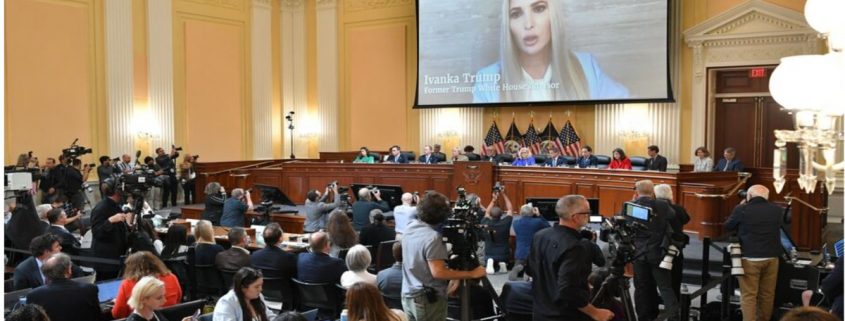
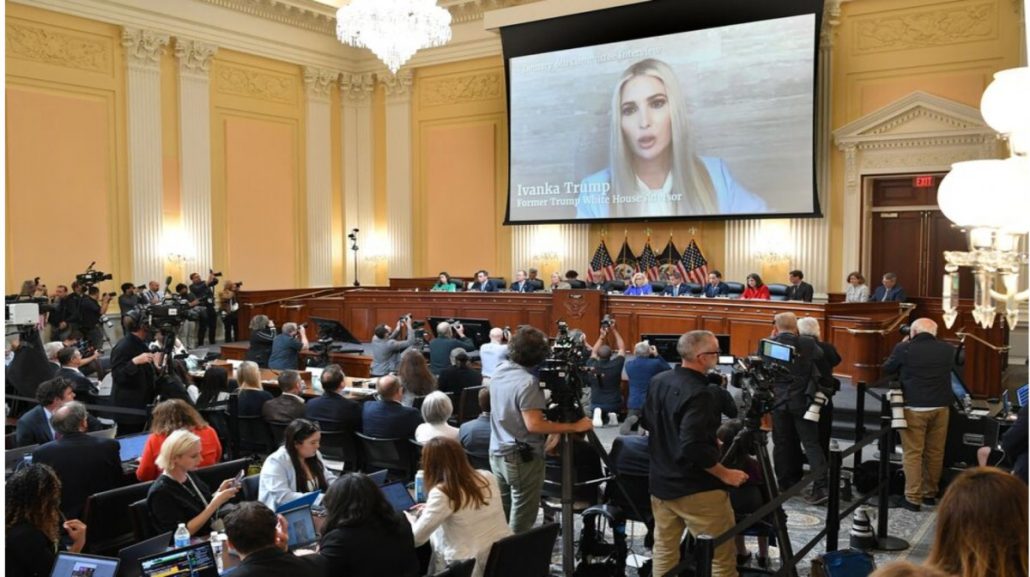


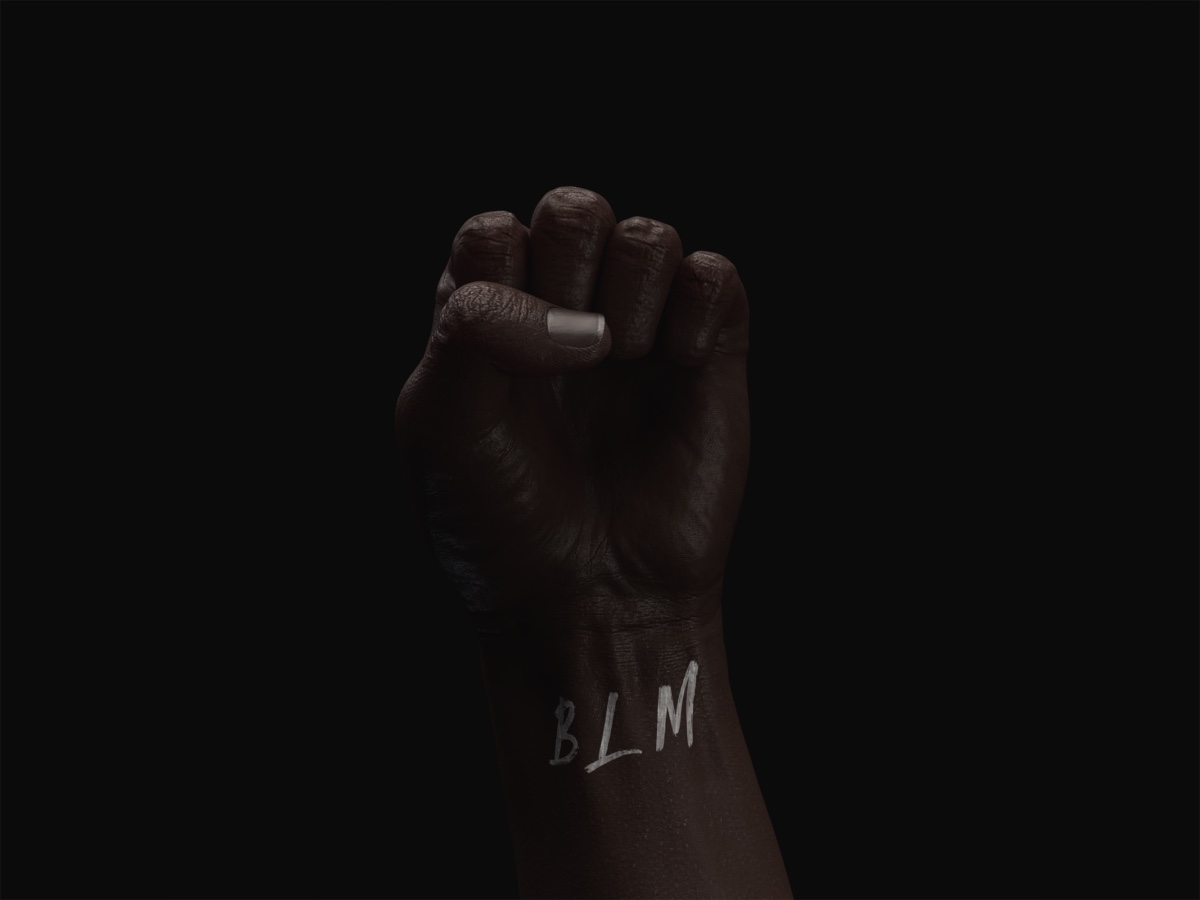


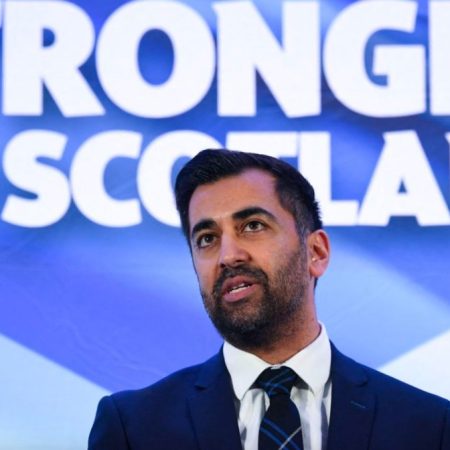
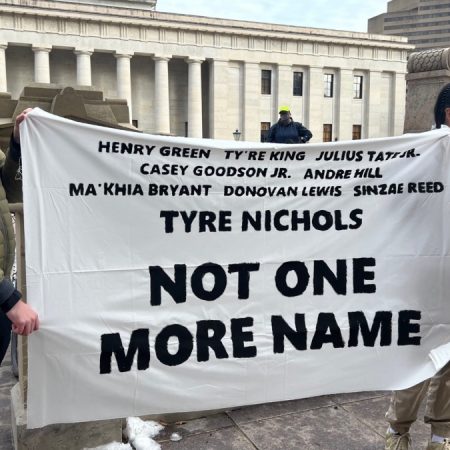






2022
2,320 views
views
0
comments